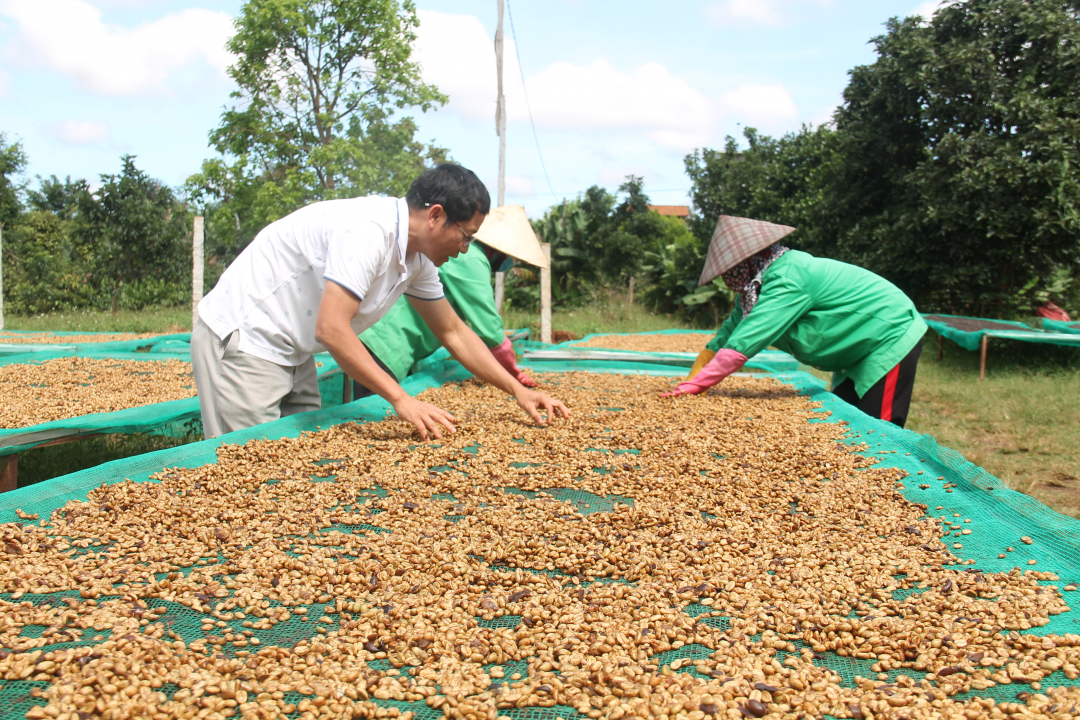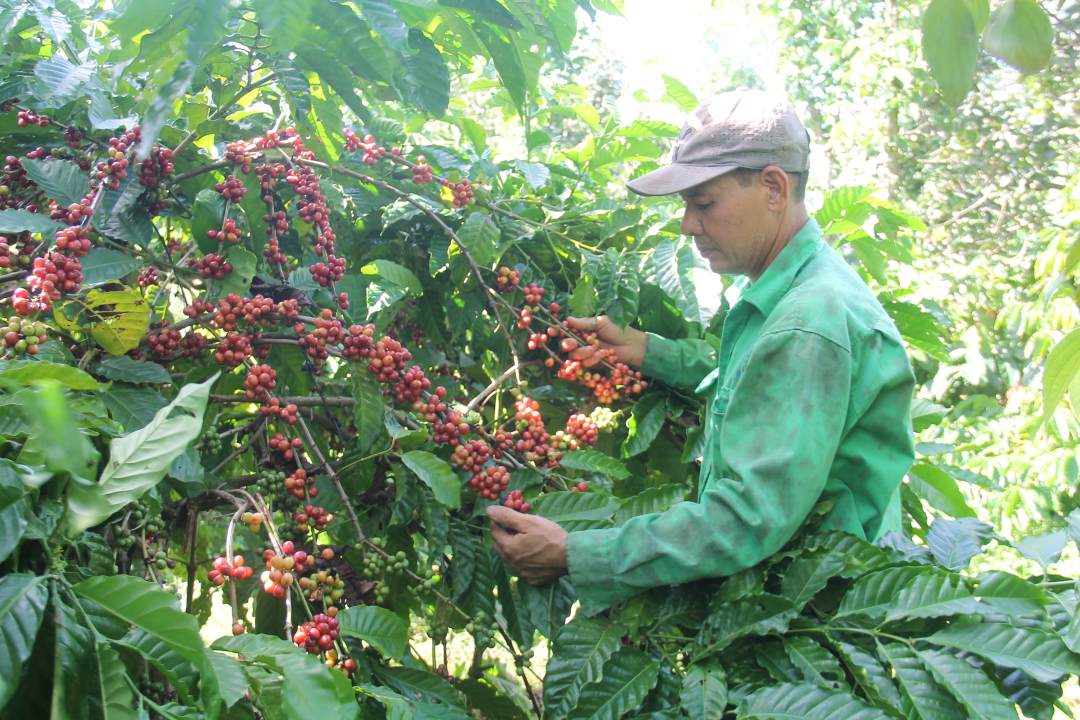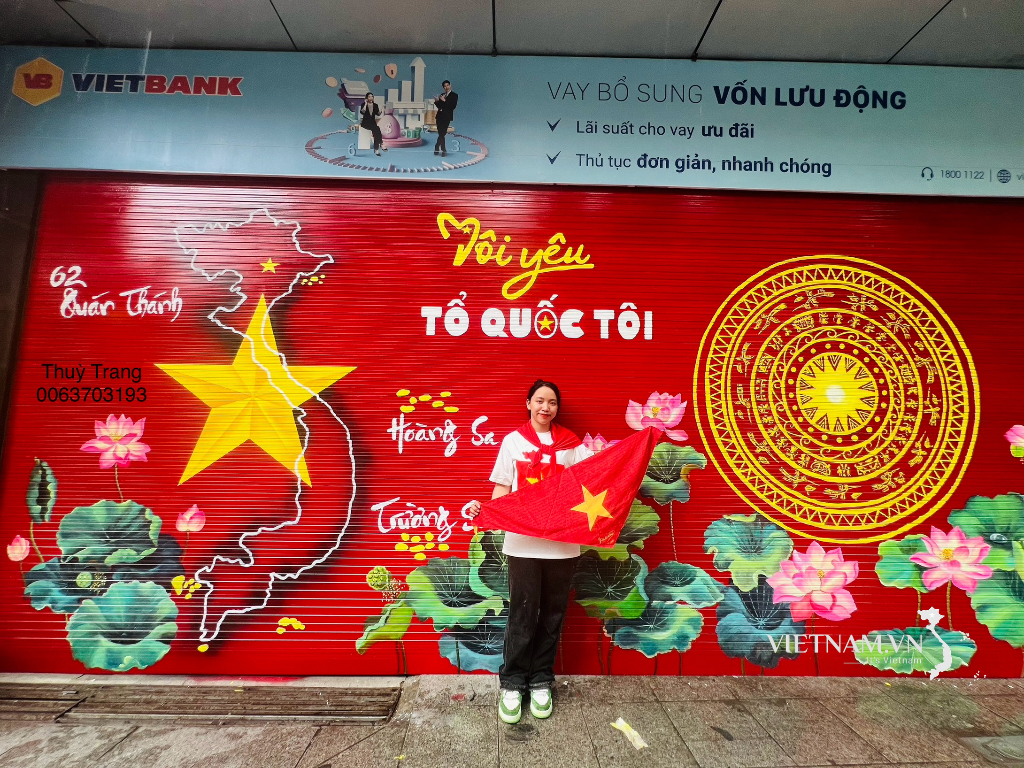08:25, 31/05/2023
The EU's regulation on supply chains that do not cause deforestation and forest degradation is expected to come into effect in June 2023. Under this regulation, agricultural products can only be imported into the EU if the entire process does not take place on areas of forest that have been cleared since 2020.
Opportunities for transparent production
To address the serious impact of deforestation on global climate change, the EU introduced the Deforestation-Free Products (EUDR) Bill, with clear requirements and targets for products at high risk of deforestation and forest degradation, including coffee. This bill requires importers and their supply chain partners to demonstrate that their products are not linked to deforestation or forest degradation after December 31, 2020. Specifically, the EUDR requires 100% of coffee products entering Europe to have GPS coordinates/polygons of each plantation. Based on monitoring tools, if deforestation or degradation is detected, the shipment will face recall and refund.
 |
| Farmers process the coffee beans. |
Currently, coffee is one of Vietnam's main agricultural export products, with nearly 1.8 million tons exported, generating over US$4 billion in value in 2022. Dak Lak is the coffee capital of Vietnam with 213,336 hectares, producing over 526,700 tons per year. Coffee is a key agricultural product in Dak Lak's economic structure, accounting for a large proportion of the province's total social product and annual export turnover. However, the coffee industry faces many serious challenges from stringent market requirements and sustainability pressures, especially regarding deforestation, production emissions, and ensuring sustainable and fair income for coffee farmers.
To better meet the demands of global development trends, since 2002, Dak Lak has implemented sustainable coffee production programs with certifications (4C, UTZ, RFA, FLO) and more recently, organic coffee. Simultaneously, 12 units have been certified to use the geographical indication "Buon Ma Thuot Coffee" for green coffee beans (total area of 20,326 hectares, registered production of 39,890 tons/year) and 7 units have been granted the right to use the geographical indication "Buon Ma Thuot Coffee" for roasted and ground coffee (193 tons of roasted coffee beans, 125 tons of ground coffee, and 2,000 tons of pure instant coffee). This is also the first geographical indication for coffee to be protected in Vietnam and internationally in 32 countries and territories. The implementation of programs and projects for sustainable coffee development has significantly contributed to shaping a new generation of coffee producers, in line with global trends towards sustainable production.
Mr. Nguyen Hoai Duong, Director of the Department of Agriculture and Rural Development, assessed that this draft law aims to minimize the risks of products in the supply chain related to deforestation/degradation being imported into or exported from the EU. Basically, the EUDR does not significantly impact Vietnamese coffee – specifically Dak Lak – because the EU uses the timeframe from 2020 onwards, while Dak Lak's coffee industry has been developing steadily for several decades. At the same time, the EUDR is also consistent with Vietnam's policies on forest protection and coffee development. The province's stance is to closely follow the contents of the draft law and seek the opinion of the Ministry of Agriculture and Rural Development to have a unified policy so that Dak Lak can be prepared, as these are issues that could affect Dak Lak's agricultural exports to Europe. Based on this, Dak Lak will also review and reassess the entire current state of production to prepare certifications for areas that meet the new EU requirements, so that when the EUDR comes into effect, Dak Lak will be procedurally ready for export products. This also serves as a warning to prevent deforestation for agricultural land or the use of land derived from deforestation.
Proactive solutions
The EUDR is expected to be announced in June 2023, with an 18-month preparation period for stakeholders. To proactively develop feasible solutions to support the coffee industry and key production areas in meeting EUDR requirements, the Department of Agriculture and Rural Development is collaborating with the Vietnam Sustainable Trade Initiative (IDH) to finalize a pilot implementation plan throughout the province; supporting businesses and farmers in accessing new EU information and regulations to create a favorable legal framework for exports, maintain market share, and avoid future violations.
 |
| Coffee harvesting in Buon Ma Thuot City. |
Local authorities need to proactively understand the EUDR requirements, reorganize agricultural production towards modernization, green growth, and sustainable development. The agricultural sector will advise the Provincial People's Committee on implementation based on the principles of continuity, ease of implementation, and low cost, meeting the EU's requirements.” Mr. Nguyen Hoai Duong, Director of the Department of Agriculture and Rural Development |
According to Ms. Tran Quynh Chi, Asia Director of the Landscape Program (IDH), Dak Lak needs to focus on solutions regarding: necessary information and data for a reference map to monitor deforestation caused by coffee production; GPS/polygon positioning data for all coffee plantations; delineating coffee production areas according to high, medium, and low risk levels for deforestation; and traceability… Currently, the EU's remote monitoring tool (using remote sensing imagery) detects deforestation based on nationally recognized and shared reference forest maps to determine whether the loss/reduction of forest cover at a specific GPS/polygon point falls within forest land. Therefore, it is necessary to standardize and create an accurate reference forest map that reflects the reality of forests and forest types in accordance with European regulations and definitions. Furthermore, plantation forests used for timber, paper, and rubber production also need to be re-verified to avoid the system mistakenly classifying them as natural forests. In addition, the EUDR requires full traceability of coffee products down to the plantation; therefore, all coffee imported into the EU must have geographic location data (GPS/polygon) indicating its place of production. Consequently, the participation of government agencies is needed in sharing existing data and developing procedures for identifying and cataloging GPS/polygon data for all coffee plantations…
IDH is also proposing that stakeholders develop a mechanism for sharing and responding to information when the European market detects or warns about deforestation in coffee production areas supplying this market. Simultaneously, discussions are underway regarding programs and activities to support farmers in high-risk coffee-growing areas, particularly in ensuring livelihoods, raising awareness, and other forms of encouragement for reforestation/forest protection.
Minh Thuan - Minh Thong
Source link




![[Photo] Enchanted by the deciduous forest during the leaf-changing season.](/_next/image?url=https%3A%2F%2Fvphoto.vietnam.vn%2Fthumb%2F1200x675%2Fvietnam%2Fresource%2FIMAGE%2F2026%2F02%2F04%2F1770196861704_2066642_8ffd5f25c3c9433be0e644abe71613ae.jpeg&w=3840&q=75)


























































![[Photo] Prime Minister Pham Minh Chinh presides over the regular Government meeting in January 2026.](/_next/image?url=https%3A%2F%2Fvphoto.vietnam.vn%2Fthumb%2F402x226%2Fvietnam%2Fresource%2FIMAGE%2F2026%2F02%2F04%2F1770209446450_hopcp-jpg.webp&w=3840&q=75)



































Comment (0)